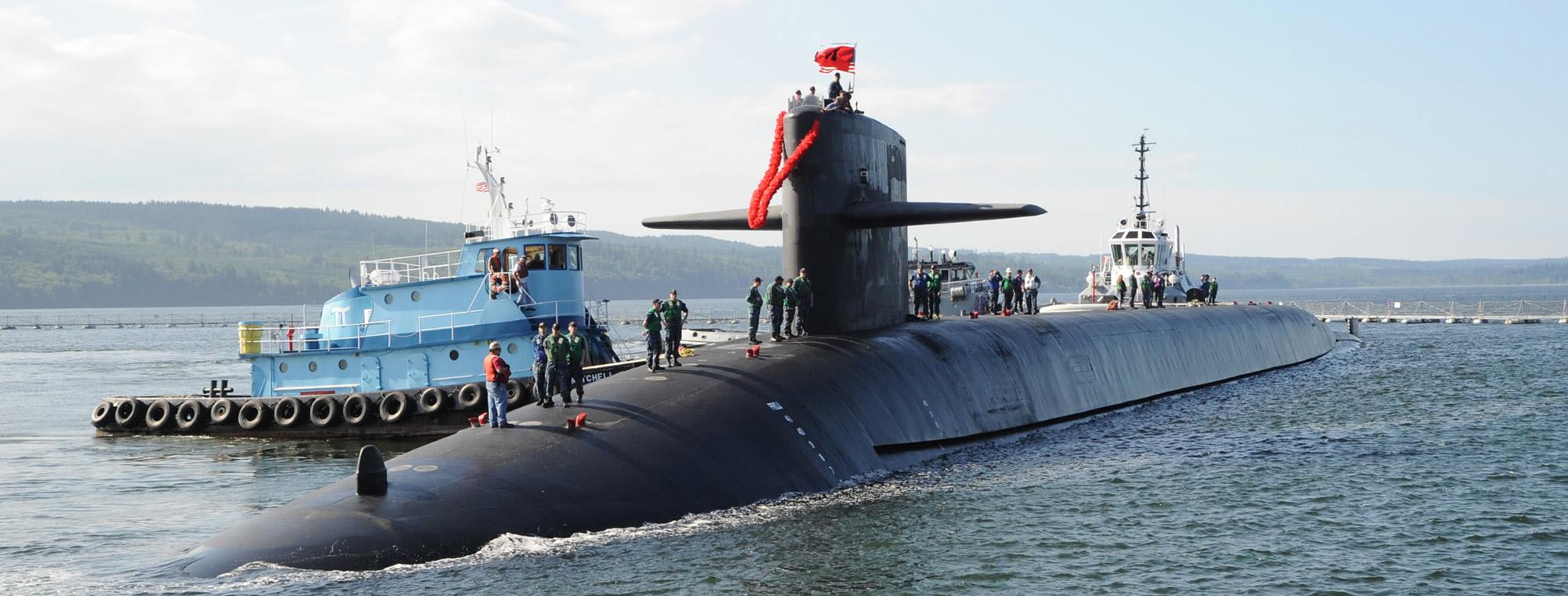A growing number of leaders like Representative Adam Smith (D-WA), Ranking Member of the House Armed Services Committee, are increasingly concerned about the US government’s $1 trillion plan to rebuild our nuclear arsenal – a plan that could trigger a new arms global arms race with Russia and China. "I think to have a Cold War nuclear [weapons] policy is completely inappropriate to the current times," the US Congressman from Washington State recently said.
He has reason to worry. Few people in the US are aware of this dangerous taxpayer-funded plan that could profoundly impact Washington State. And few locals know that if Washington State were a country, it would be the third largest nuclear state in the world, that just 20 miles west across the Puget Sound is the largest concentration of deployed nuclear weapons in the United States at the Kitsap-Bangor base, and that the US Navy is planning to expand the Kitsap-Bangor base to accommodate Trident-class nuclear weapons submarines.
That is why the Ground Zero Center for Nonviolent Action recently sponsored a public bus advertising campaign in Seattle to raise public awareness of the nuclear threat so close to home.
"We hope to generate a measure of citizen interest, and to begin a public discussion of nuclear weapons in the Puget Sound region. In this election year the danger of nuclear weapons ought to be a topic of discussion," Ground Zero member Rodney Brunelle recently said of the bus ad campaign.

However, Ground Zero encountered an unanticipated problem. According to the group, the county was hesitant to run the ad, doubting the accuracy of the claim.
That’s where Ploughshares Fund grantee, renowned nuclear expert Hans Kristensen, came into the picture.
Ground Zero contacted Kristensen, Director of the Nuclear Information Project at the Federation of American Scientists, to verify the facts in order to convince the county that their ad was not making false claims. He regularly provides the general public and policymakers with information and analysis on the status, number, and operation of nuclear weapons, the policies that guide their potential use and nuclear arms control.
We believe the public needs this type of information and analysis if for no other reason than that we live in a democracy where people should have a say in the most important decisions the country makes – and this includes policy decisions related to nuclear weapons.
Funding expert sourcing and verification of information around nuclear weapons can help democratize important decisions and inform expert policy analysis at the same time. We are proud to support Kristensen and the Nuclear Information Project at the Federation of American Scientists. Information is the lifeblood of a democracy. We believe that through reason, information and dialogue, the threat of nuclear weapons can be reduced – and one day – even eliminated.
Photo: The Ohio-class ballistic-missile submarine USS Nebraska (SSBN 739) returns to its homeport of Naval Base Kitsap-Bangor following a strategic deterrent patrol. Credit: Flickr / usnavy (cc).





